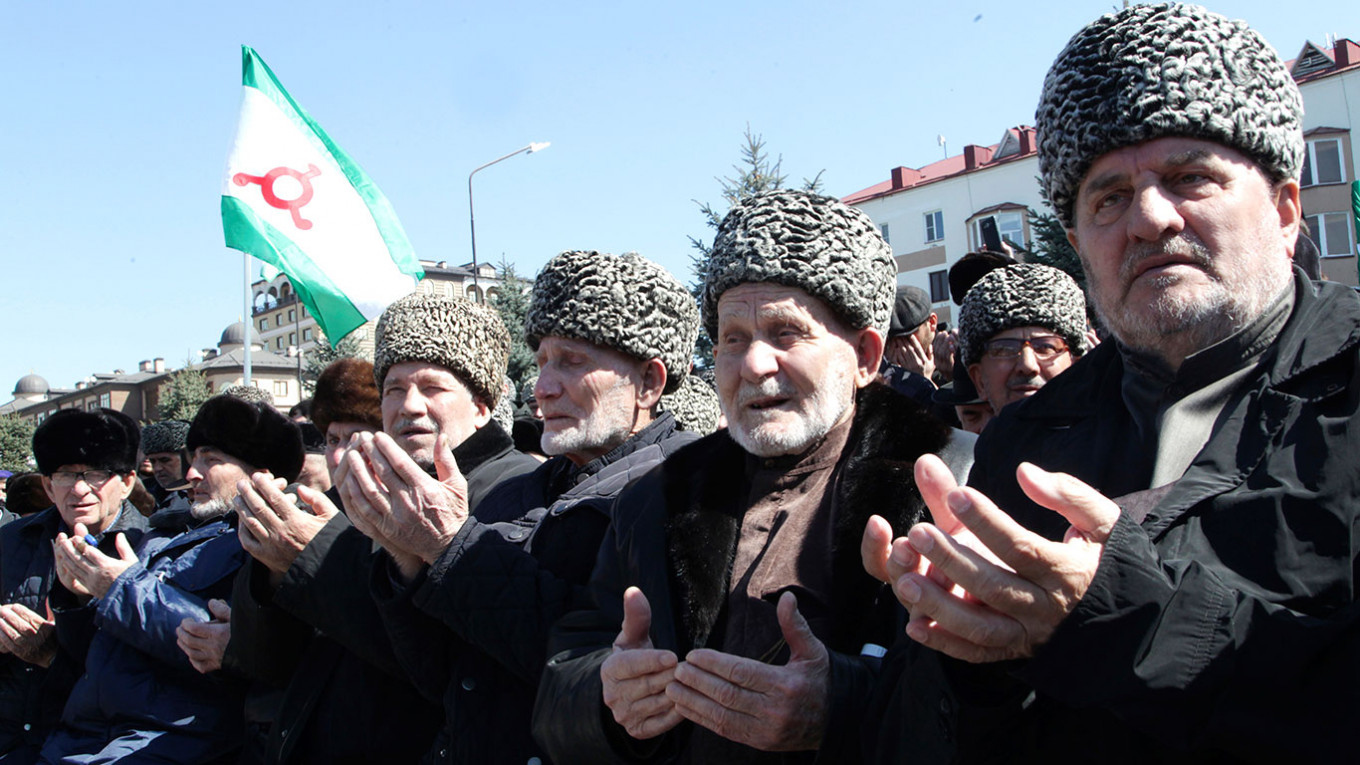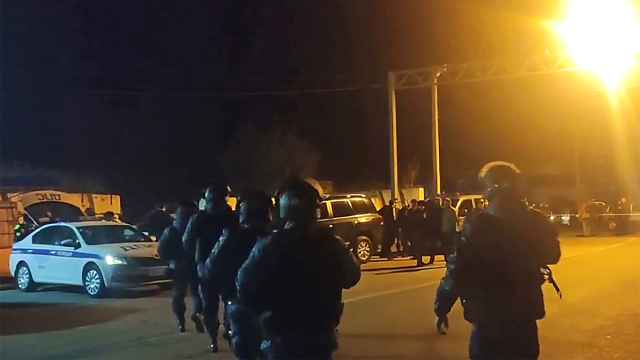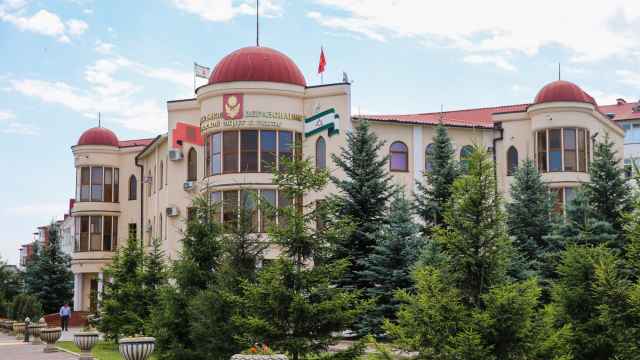A Russian court has handed lengthy prison sentences to seven leaders of a protest movement in the small North Caucasus republic of Ingushetia that saw tens of thousands take to the streets against a controversial land-swap deal.
The impoverished region saw a rare wave of protests and clashes with police in 2018-2019 after its leaders signed a contested border-swap agreement with neighboring Chechnya that saw Ingushetia, already Russia’s smallest region, give up disproportionally more territory than Chechnya.
The protest leaders, six men and one woman, received sentences ranging from seven and a half to nine years in prison on charges of organizing an extremist organization and perpetuating violence against security officials.
“We accept this test with bravery, we didn’t expect anything else from this country. We were right, I don’t regret anything,” defendant Musa Malsagov, 49, told a court in Kislovodsk, a city in the Stavropol region where the hearing was taking place.
During the clashes, a number of local police officers refused to intervene during clashes, and more than a dozen patrol officers have since been fired for failing to disperse protesters rallying against the land swap deal.
The Chechnya-Ingushetia border agreement immediately sparked public opposition in Ingushetia after it was concluded on Sept. 26, 2018, between Chechen strongman Ramzan Kadyrov and Ingush head Yunus-bek Yevkurov.
On Oct. 30, 2018, the Constitutional Court of Ingushetia ruled that the agreement was illegal as changes to Ingushetia’s territory required approval by referendum, but the Constitutional Court of Russia in Moscow overrode that decision later in the year.
Following the unrest, Yevkurov resigned from his position in the summer of 2019.
A Message from The Moscow Times:
Dear readers,
We are facing unprecedented challenges. Russia's Prosecutor General's Office has designated The Moscow Times as an "undesirable" organization, criminalizing our work and putting our staff at risk of prosecution. This follows our earlier unjust labeling as a "foreign agent."
These actions are direct attempts to silence independent journalism in Russia. The authorities claim our work "discredits the decisions of the Russian leadership." We see things differently: we strive to provide accurate, unbiased reporting on Russia.
We, the journalists of The Moscow Times, refuse to be silenced. But to continue our work, we need your help.
Your support, no matter how small, makes a world of difference. If you can, please support us monthly starting from just $2. It's quick to set up, and every contribution makes a significant impact.
By supporting The Moscow Times, you're defending open, independent journalism in the face of repression. Thank you for standing with us.
Remind me later.






